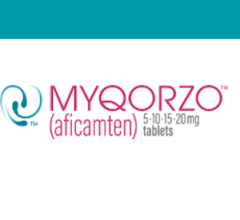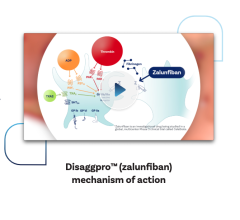
March 9, 2015 — Nearly all women and people over 65 in the United States with atrial fibrillation are advised to take blood thinners under new guidelines based on an analysis from the Duke Clinical Research Institute (DCRI).
Atrial fibrillation, or AFib, is an irregular heartbeat that can lead to blood clots, stroke, heart failure and other heart-related complications. It affects about 2.7 million people in the U.S. Anticoagulant drugs help prevent blood from clotting and potentially causing stroke.
In 2014, the American Heart Association, American College of Cardiology and Heart Rhythm Society issued broader guidelines for the use of anticoagulants in treating AFib. Notably, being female is now included in the guidelines as a contributing risk factor for stroke, said Emily O’Brien, Ph.D., lead author of the Duke study.
Analysts at DCRI reviewed data from a registry called ORBIT that included 10,132 AFib patients from 176 sites across the U.S. They examined patients’ age, gender and other risk factors such as prior congestive heart failure, high blood pressure, diabetes and prior stroke. The analysis, published in JAMA-Internal Medicine, provides a roadmap for how the broader guidelines could impact the number of patients recommended for drug therapy.
The researchers report that the overall proportion of AFib patients recommended for blood-thinning drugs would increase by 19 percent as a result of the new guidelines, from about 72 percent of all AFib patients to 91 percent.
A similar increase was predicted for women with the heart condition. Under previous guidelines, about 77 percent of female AFib patients in the study population would have been recommended for treatment with anticoagulants. Under the new guidelines, 98 percent of women in the sample population would have enough risk factors to be recommended for treatment.
The new recommendations also lower the age at which patients are considered at risk for stroke from 75 to 65. In the study population, this meant that almost 99 percent of patients with AFib over age 65 could now be recommended for blood thinners, as compared with roughly 80 percent whose stroke risk was severe enough under the previous criteria to suggest drug therapy.
“The full adoption of the guidelines could reclassify nearly 1 million people with AFib who previously weren’t recommended for treatment with blood thinners,” O’Brien said. “What we don’t know yet is the extent to which doctors in community practice will incorporate the guidelines into their clinical routines, and what that will mean for the long-term outcomes for those patients. That will be the next step for our study.”
Patients with AFib should be confident that the new guidelines are evidence-based, but they are just one factor that a physician should consider when planning their treatment, O’Brien said. Doctors should also weigh the possible risks and benefits of drug treatment, as well as the patient’s goals and values, she said.
Blood thinners can protect patients against a blood clot or stroke, but might also put patients at some increased risk for bleeding. However, for most patients, the benefits outweigh the bleeding risk, O'Brien said.
For more information: www.dcri.org


 January 28, 2026
January 28, 2026 









